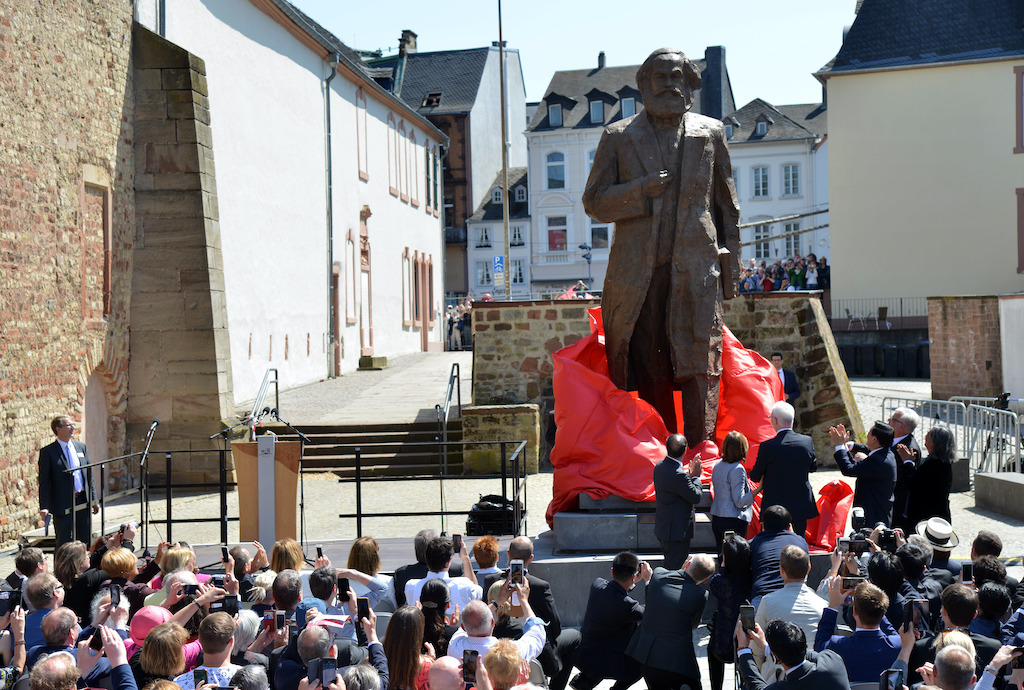Disastrous ideas are making a comeback
It is hardly a coincidence that a new monument of Karl Marx, the creator of socialist philosophy, was erected in the city of his birth in 2018. Marxist ideas have been undergoing a renaissance for all sorts of wrong reasons, including in academic and political circles.

Socialism has repeatedly, consistently and without exception, proven a failure. The Soviet Union of Joseph Stalin and Leonid Brezhnev, Venezuela of Hugo Chavez and Nicolas Maduro, or Pol Pot’s bloody experiment in Cambodia are striking examples of the disaster this system inevitably brings on countries that embrace it. Another socialist experiment is now taking place in China. On the one hand, it is about trying to improve the material well-being of Chinese people, on the other – introducing total control by the ruling party.
What is socialism? Basically, it is a doctrine that uses the lofty notions of equality and solidarity to impose an oppressive system that is anathema to these. Equality, being alien to human nature, is incompatible with freedom. The pursuit of equality invariably leads to fascism-like solutions. A free society, as opposed to a socialist one, lets people pursue opportunities of their choice as long as it does not harm others. This is also the basis of free-market competition. These are the ingredients of systems characterized by cohesion, prosperity and fruitful progress.
Systemic brutality and intimidation
Socialist systems come in a variety. The most extreme forms existed during Stalin’s purges in the Soviet Union, in Albania under Enver Hoxha and Pol Pot’s social engineering in Cambodia, and in China during the decade-long Cultural Revolution of Mao Zedong. In the Soviet system, property rights were eliminated. In today’s China, some entrepreneurship and private property are allowed. However, the state has the power to confiscate it at will and individual freedom is subjected to the arbitrary designs of the ruling bureaucracy.
A striking characteristic of all these states is the rulers’ brutal intolerance of freedom of opinion and the system’s critics.
General prosperity cannot be reached while enforcing strict equality on society.
Given socialism’s track record, it is surprising that Marxist-Leninist ideas are seeing a comeback lately – although, this time around, they have been repackaged. Increasing numbers of NGOs, politicians, media outlets and universities come out in support of the socialist and totalitarian renaissance as green movements in which environmental and climate issues are misused to camouflage neo-Marxist policy “solutions.” Tellingly, these groups and organizations display sharp intolerance to any disagreement with their doctrine.
This doctrinaire attitude is on the rise on both sides of the Atlantic. Some universities in Europe no longer seem concentrated on propagating knowledge, open debate and understanding; the focus on campuses has shifted to what are considered the correct opinions. Many NGOs attack those not toeing their lines, assailing the plurality of opinion and ignoring fact-based arguments. What we are witnessing looks like poorly camouflaged attempts to impose authoritarian norms. Intolerance in society is increasing by the day.
Populist politicians of all ilk – and political parties especially – like to ride the wave of denouncing economic and social inequality. They willfully ignore the well-established fact that general prosperity cannot be reached while enforcing strict equality on society. They also omit the experience-born truth that poverty is effectively eliminated in a healthy, market-driven economy, not through the redistribution of wealth. Such schemes are not sustainable: as Margaret Thatcher famously observed, “The trouble with socialism is that you eventually run out of other people’s money.”
Why do they do it?
A number of economists – motivated either by ignorance of their discipline’s basics, stubborn righteousness or ideological fanaticism – present social inequality as the root cause of today’s economic and social problems. In the United States, even seasoned political veterans active in the electoral campaign subscribe to this damaging doctrine.
The revival of old totalitarian temptation also takes place in the open. While one sees many old monuments removed from public places or vandalized, a new statue of Karl Marx has been added to the many already standing in the world. Even the then-president of the European Commission, Jean-Claude Juncker, attended the 2018 celebrations of the philosopher’s 200th anniversary and the unveiling of the hulking 4.4-meter bronze figure in Trier, his birthplace.
No one seemed to care that Marx was the father of an ideology that murdered untold millions in the 20th century. If that estimate seems high, please add the victims of Stalin’s sweeping purges – including the state-induced hunger (Holodomor) in Ukraine – the mass executions in China during Mao’s Long March and Cultural Revolution, and the genocide in Cambodia, to name just the most tragic crimes committed in the name of socialism and Marxist ideas.
